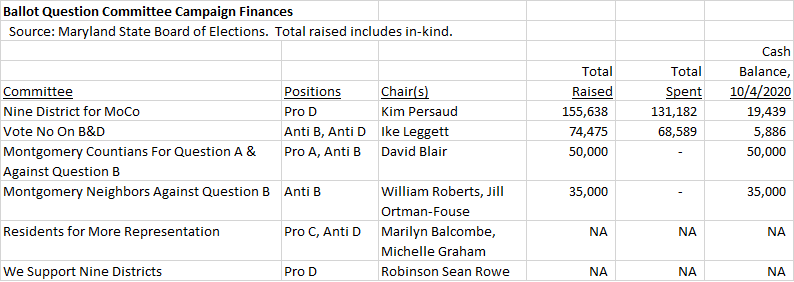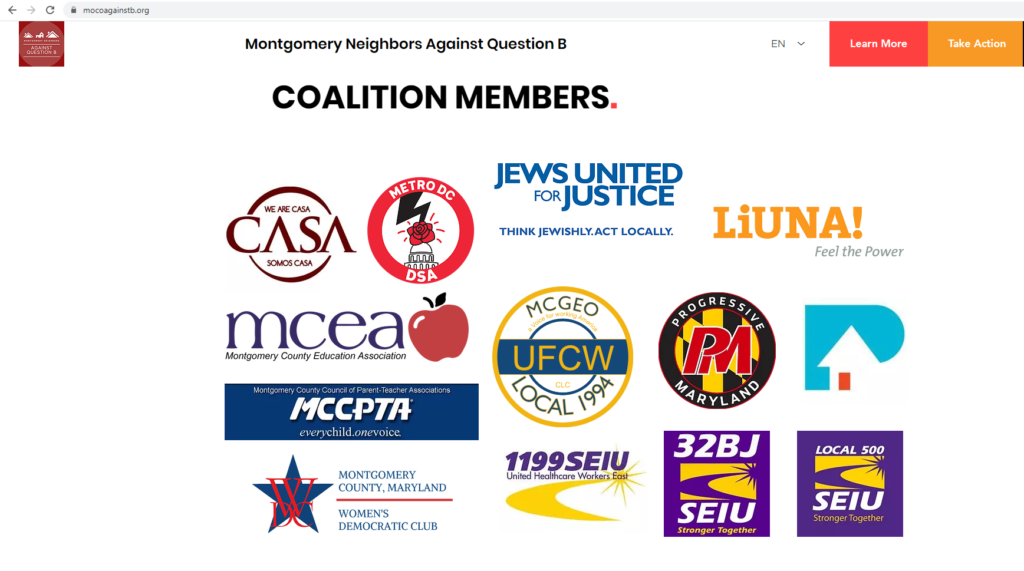By Adam Pagnucco.
Friends of White Flint made a huge score last week when they landed the heavyweight battle of the year, at least for MoCo tax geeks: a debate between Council Member Andrew “Real Deal” Friedson and long-time anti-tax activist Robin Ficker. Friedson and Ficker are the authors of Questions A and B, dueling tax limit charter amendments on the ballot this year. No quarter was asked and no quarter was given!
First, a reminder of what these tax questions would do. Question A (the Friedson amendment) would freeze the property tax rate and allow it to be increased only by a unanimous vote of the county council. Question B (the newest of many Ficker amendments) would allow property tax collections to rise at the rate of inflation and remove the current ability of a unanimous council to override it. Both questions impose limits on property taxes that the vast majority of Maryland counties don’t possess, although Question A would raise more money than Question B over time.
Friends of White Flint invited Friedson and Ficker to discuss their charter amendments on a Zoom meeting and they did not disappoint. Stiff jabs, hooks and uppercuts were thrown (virtually of course) as the high school linebacker and Muhammad Ali’s running partner put on a show. But Friedson threw the winning punch with this statement:
What Robin Ficker will not say, what he is not telling you, is when he repeatedly talks about that 8.7% property tax increase [in 2016] based on this ridiculous tax policy that we currently have, his property taxes, not just his tax rates, his property taxes, the literal dollars that Mr. Ficker pays today, are lower than what they were when property taxes were raised.
This is a true statement as can be verified from county records. Ficker was charged $4,920 in county property taxes on his Boyds home in 2016 and has been charged $4,723 this year, a 4% drop in his taxes. This is despite a slight increase in his property’s assessed value. Ficker’s experience demonstrates a quirk of the current property tax charter limit that his charter amendment would convert into a hard cap: because the charter limit ties revenue growth to inflation and not growth in the assessable base (which is usually higher), it can actually result in cuts to property tax rates and reductions in collections from some specific properties, including Ficker’s. Friedson argues that this deprives the county of the full tax benefits it could otherwise derive from growth and serves as a disincentive for economic development.
Ficker had no response on the issue of his county property taxes.
The full video is below.


